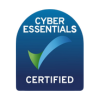Cloud Security Assessments
Cloud computing brings efficiency, but also new risks. Organisations often struggle to keep up with security needs as they adopt cloud services rapidly. Having multiple cloud accounts can mean inconsistent security oversight, leaving some areas vulnerable. Breaches in supposedly less important cloud areas can still have serious consequences. Unlike traditional networks, cloud environments need more dynamic security measures for constant protection, especially as remote work expands the attack surface. Misconfigurations are a common issue, often stemming from early mistakes and requiring assessments to identify and fix them.

Cloud security commonly encounters challenges arising from misconfigurations, often stemming from early errors by network engineers. Regular security assessments are vital to pinpoint and resolve such issues, ensuring that outdated security measures are promptly updated.
Excessive network permissions present another significant risk, potentially permitting unauthorised access from untrusted third parties or amplifying the impact of otherwise minor breaches through unauthorised outbound traffic.
Ineffective user account management exacerbates these risks, whether through excessively broad privileges, lack of restrictions on source IP addresses or countries, or reliance on static credentials instead of more secure multi-factor authentication (MFA). These vulnerabilities make it easier for attackers to impersonate legitimate users and manipulate or compromise data.
Overall Security Posture
Assess the security of enterprise cloud infrastructure by conducting interviews and reviewing documentation.
Access Control and Management
Examine identity and access management, which involves reviewing user accounts, roles, and how keys are managed.
Network Security
Evaluate segmentation and firewall policies to identify and address common misconfigurations.
Incident Management
Assess the incident response policy concerning cloud infrastructure, examining roles and procedures involved in managing an incident.
Storage Security
Evaluate the status of cloud storage, including object-level storage, block-level storage, and associated snapshots.
Platform Service Security
Assessing the security configurations of advanced service offerings unique to each cloud service provider involves scrutinising access controls, encryption methods, and other measures to ensure compliance with industry standards and enhance overall security.
Workload Security
Evaluating security for workloads, including virtualised servers, server-hosted containers, functions, and serverless containerised workloads, entails assessing access controls, encryption protocols.




